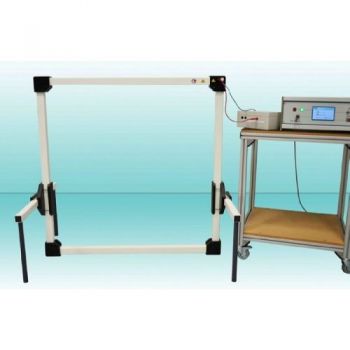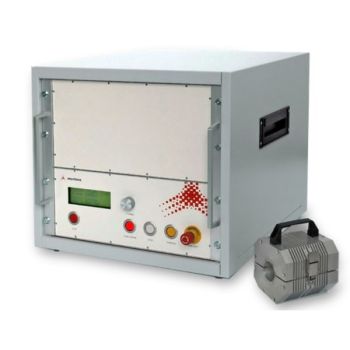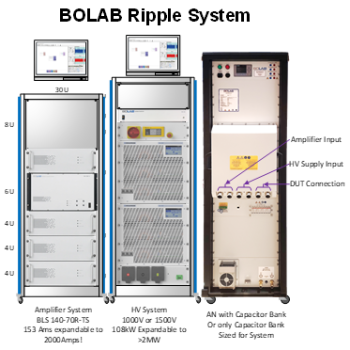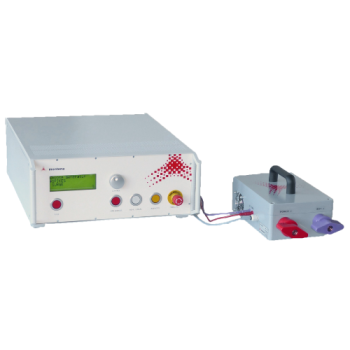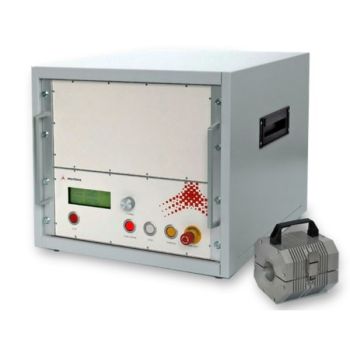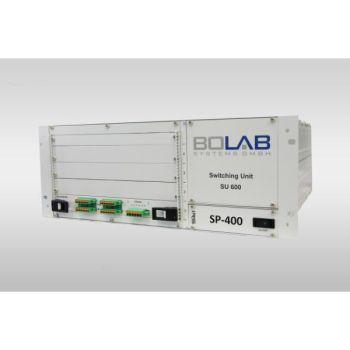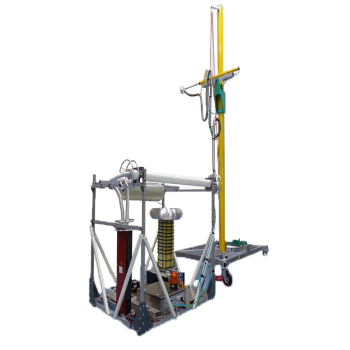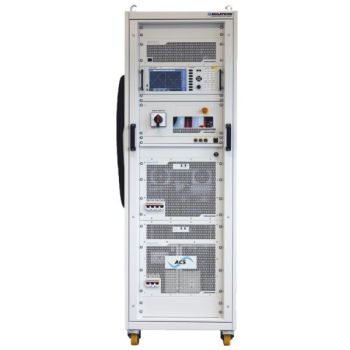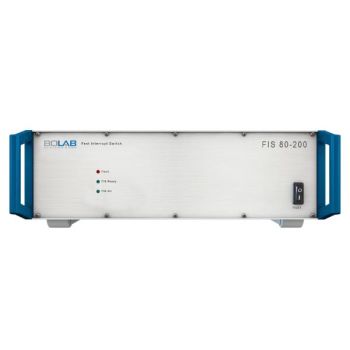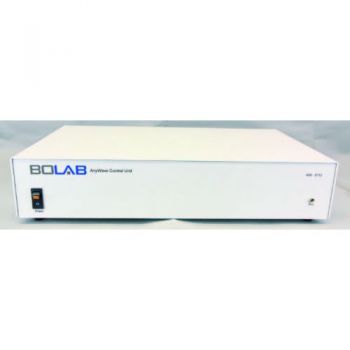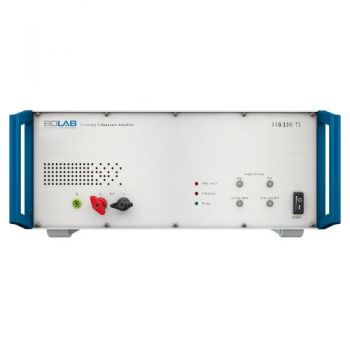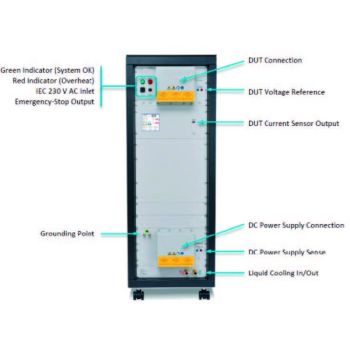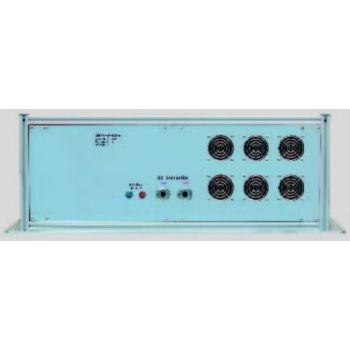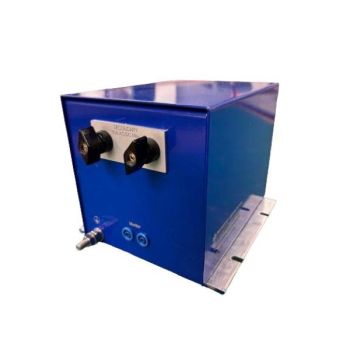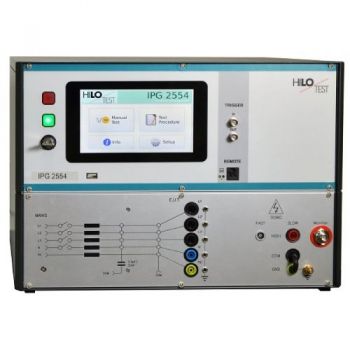
IPG 2554: Oscillatory Wave Generator
The oscillatory wave generator IPG 2554 has been designed for immunity testing of electrical and electronic equipment against repetitive damped oscillatory waves according to IEC 61000-4-18 requirements. It generates a decaying sine waveform with ringing frequency from 100 kHz to 30.0 MHz. These waveforms represent disturbances occurring in power, control and signal cables installed in high voltage and medium voltage stations and in heavy industrial installations.
PARTNER:
MARKETS:
TEST STANDARDS:
IPG 2554
Oscillatory Wave Generator
|
Slow damped oscillatory |
100 kHz 1.0 MHz |
|
Fast damped oscillatory |
3.0 MHz 10.0 MHz 30.0 MHz |
Related offerings:
IPG 2554 S Model is only supplied with Slow damped oscillatory waves 100 kHz and 1 MHz. All other specifications are the same as below.
IPG 2554 F Model is only supplied with Fast damped oscillatory waves 3, 10, & 30 MHz. All other specifications are the same as below.
|
According to |
|
IEC 61000-4-18 : 2006 |
The oscillatory wave generator IPG 2554 has been designed for immunity testing of electrical and electronic equipment against repetitive damped oscillatory waves according to IEC 61000-4-18 requirements.
It generates a decaying sine waveform with ringing frequency from 100 kHz to 30.0 MHz. These waveforms represent disturbances occurring in power, control and signal cables installed in high voltage and medium voltage stations and in heavy industrial installations.
The output amplitude is adjustable between 0.25 kV and 4 kV. The positive or negative polarity of the first amplitude can be selected.
The Coupling-/ Decoupling Network integrated allows superimposition of the generator output waveform to up to four interconnection lines of the equipment under test.
IPG 2554 features a microprocessor controlled user interface and display unit for ease of use. The microprocessor allows the user to execute either standard test routines or a user-defined test sequence. The test parameters, which are shown on the built-in display, are easily adjusted by means of the rotary encoder. A standard parallel interface provides the ability to print a summary of the test parameters whilst testing is being carried out.
Moreover, all generator functions, including the settings of the built-in Coupling-/Decoupling Network may be computer controlled via the isolated optical interface.
The software program OW-REMOTE allows full remote control of the test generator via Ethernet light guide as well as documentation and evaluation of test results, accordingly to the IEC 17025. To record definite impulses, it is equipped with an Impulse Recording Function (IRF).
|
Options |
IPG 2554 |
|
|
|
|
Software OW-REMOTE Test, for remote control |
|
|
With Impulse Recording Function (IRF) |
|
|
( XP, WIN7, WIN10 ) incl. 5 m fiber optic cable and PC Ethernet interface |
|
|
TECHNICAL SPECIFICATIONS |
IPG 2554 |
|
|
|
|
Mainframe |
|
|
Microprocessor controlled touch panel |
7”, capacitive |
|
Optical Ethernet Interface for remote control of the generator |
optional |
|
Interface for saving reports |
USB |
|
External trigger input/ output |
Switch/ 10 V |
|
Coupling-/decoupling network for power supply lines |
L1, L2, L3, N, PE |
|
Connector for external safety interlock loop |
24 V = |
|
External red and green warning lamps |
230 V, 60W |
|
Mains power |
90V - 264V, 50/60 Hz |
|
Dimensions of desktop case W * H * D |
450*330*500 mm3 |
|
Weight |
35 kg |
|
|
|
|
Slow damped oscillatory |
|
|
Peak1 open circuit voltage |
200V to 3 kV ( ± 10%) |
|
Oscillation frequencies |
100 kHz 1 MHz ( ± 10%) |
|
Repetition rate |
40 Hz 400 Hz ( ± 10%) Range: (40 – 400Hz) |
|
Voltage rise time (first peak) |
75 ns ± 20% |
|
Voltage decay |
Peak5 > 50 % of Peak1 value Peak10 < 50 % of Peak1 value |
|
Polarity of the first half-period |
positive and negative |
|
Burst duration |
continuous |
|
Test time |
1 - 1000s |
|
Output impedance |
200 W ± 20% |
|
HV-output |
HV-OUT, 4 mm Æ connector |
|
Monitor output |
100:1 ± 5% |
|
Specifications short circuit: |
|
|
Short circuit current (Peak1) |
1.25 A to 12.5 A (± 20 %) |
|
|
|
|
Fast damped oscillatory |
|
|
Peak1 open circuit voltage |
200V to 4 kV ( ± 10%) |
|
Oscillation frequencies |
3 MHz 10 MHz 30 MHz ( ± 10%) |
|
Repetition rate |
5000/s ( ± 10%) Range: (40 – 5000Hz) |
|
Voltage rise time (first peak) |
5 ns ± 30% |
|
Voltage decay |
Peak5 > 50 % of the Peak1 value Peak10 < 50 % of the Peak1 value |
|
Polarity of the first half-period |
positive and negative |
|
Burst duration |
3 MHz: 50 ms ( ± 20%) 10 MHz: 15 ms ( ± 20%) 30 MHz: 5 ms ( ± 20%) Range : (1ms – 50ms) |
|
Burst period |
300 ms ( ± 20%) Range: (300ms – 1000ms) |
|
Test time |
1 - 1000s |
|
Output impedance |
50 W ± 20% |
|
HV-output |
HV-OUT, Fischer connector |
|
Specifications short circuit: |
|
|
Current rise time |
3 MHz: < 330 ns 10 MHz: < 100 ns 30 MHz: < 33 ns |
|
Current oscillation frequencies |
3, 10 and 30 MHz (± 30 %) |
|
Decaying |
Peak5 > 25 % of the Peak1 value Peak10 < 25 % of the Peak1 value |
|
Short circuit current (Peak1) |
5 A to 80 A (± 20 %) |
|
Coupling- / decoupling network for AC/DC power supply ports |
CDN 2554-16 |
|
Coupling capacitor, slow pulses |
0.5 µF |
|
Coupling capacitor, fast pulses |
33 nF |
|
|
|
|
Isolation withstand capability of the coupling capacitors with the 1.2/50µs wave |
5 kV |
|
|
|
|
Supply current rating/voltage rating |
16 A / 250 V |
|
Number of lines |
4 + PE |
|
Coupling mode |
line to line or line to ground |
|
Common mode decoupling (attenuation) |
20 dB |
|
Differential mode decoupling (attenuation) |
30 dB |
|
Input line terminal: L1-L4, GND |
4 mm Æ connector |
|
Output EUT terminal: L1-L4, GND |
4 mm Æ connector |


